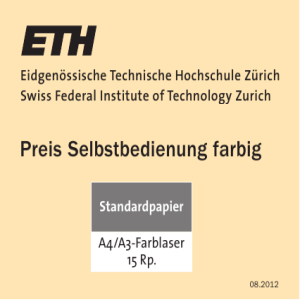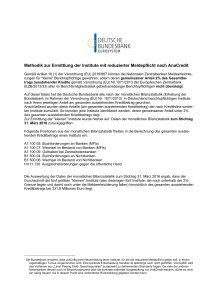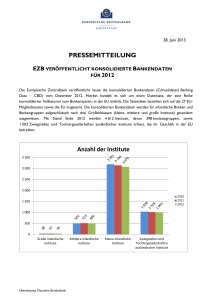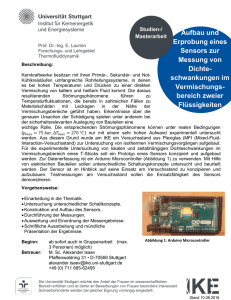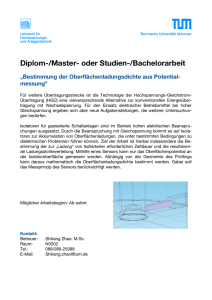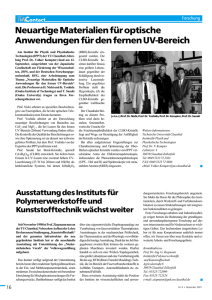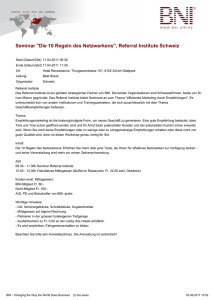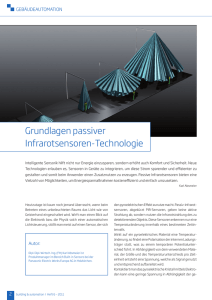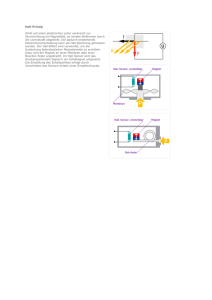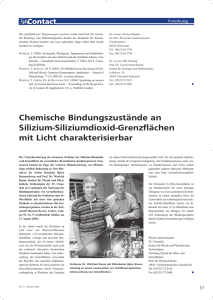Technische Universität Clausthal Unternehmen
Werbung
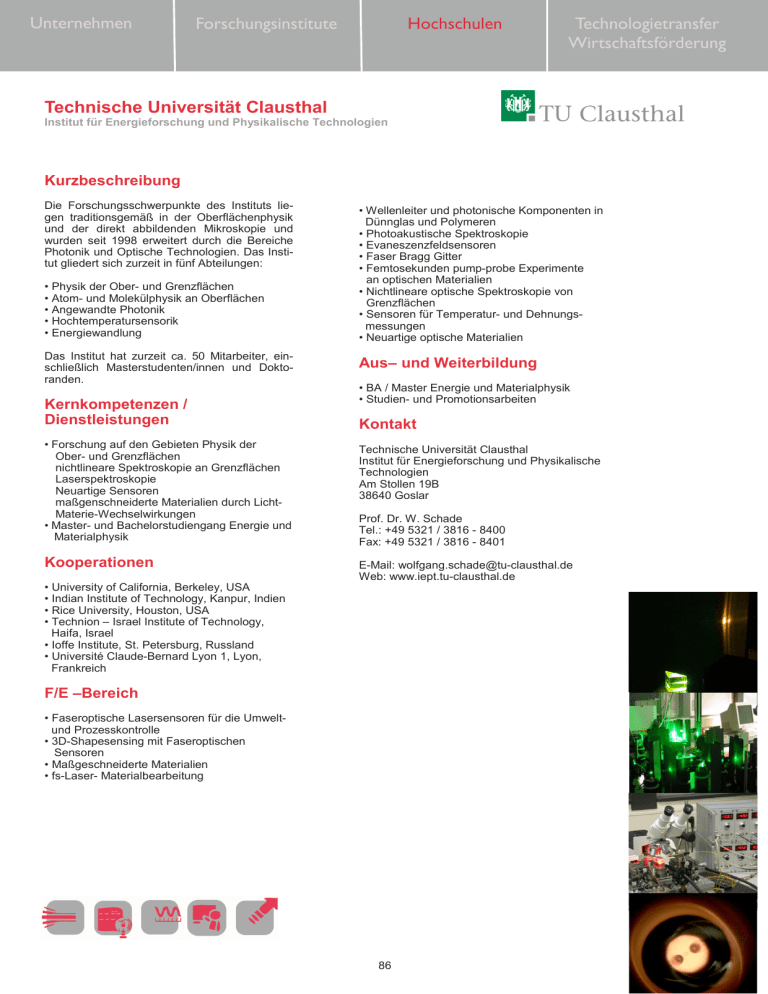
Unternehmen Forschungsinstitute Hochschulen Technologietransfer Wirtschaftsförderung Technische Universität Clausthal Institut für Energieforschung und Physikalische Technologien Kurzbeschreibung Die Forschungsschwerpunkte des Instituts liegen traditionsgemäß in der Oberflächenphysik und der direkt abbildenden Mikroskopie und wurden seit 1998 erweitert durch die Bereiche Photonik und Optische Technologien. Das Institut gliedert sich zurzeit in fünf Abteilungen: • Physik der Ober- und Grenzflächen • Atom- und Molekülphysik an Oberflächen • Angewandte Photonik • Hochtemperatursensorik • Energiewandlung Das Institut hat zurzeit ca. 50 Mitarbeiter, einschließlich Masterstudenten/innen und Doktoranden. Kernkompetenzen / Dienstleistungen • Wellenleiter und photonische Komponenten in Dünnglas und Polymeren • Photoakustische Spektroskopie • Evaneszenzfeldsensoren • Faser Bragg Gitter • Femtosekunden pump-probe Experimente an optischen Materialien • Nichtlineare optische Spektroskopie von Grenzflächen • Sensoren für Temperatur- und Dehnungsmessungen • Neuartige optische Materialien Aus– und Weiterbildung • BA / Master Energie und Materialphysik • Studien- und Promotionsarbeiten Kontakt • Forschung auf den Gebieten Physik der Ober- und Grenzflächen nichtlineare Spektroskopie an Grenzflächen Laserspektroskopie Neuartige Sensoren maßgenschneiderte Materialien durch LichtMaterie-Wechselwirkungen • Master- und Bachelorstudiengang Energie und Materialphysik Technische Universität Clausthal Institut für Energieforschung und Physikalische Technologien Am Stollen 19B 38640 Goslar Kooperationen E-Mail: [email protected] Web: www.iept.tu-clausthal.de Prof. Dr. W. Schade Tel.: +49 5321 / 3816 - 8400 Fax: +49 5321 / 3816 - 8401 • University of California, Berkeley, USA • Indian Institute of Technology, Kanpur, Indien • Rice University, Houston, USA • Technion – Israel Institute of Technology, Haifa, Israel • Ioffe Institute, St. Petersburg, Russland • Université Claude-Bernard Lyon 1, Lyon, Frankreich F/E –Bereich • Faseroptische Lasersensoren für die Umweltund Prozesskontrolle • 3D-Shapesensing mit Faseroptischen Sensoren • Maßgeschneiderte Materialien • fs-Laser- Materialbearbeitung 86 Companies Research Institutes Universities Technology transfer Business development Clausthal Technical University Institute for Energy Research and Physical Technologies Brief Outline Traditionally the research activities of the institute were focused on surface sciences and surface microscopy but since 1998 new key aspects in photonics and optical technologies were established. The institute is divided into five divisions: • Physics of surfaces and interfaces • Atomic and molecular physics at surfaces • Applied photonics • Sensors for high temperature processes • energy conversion Scientific and non-scientific staff: 50 Core Skills Research in the fields of physics of surfaces and interfaces, nonlinear spectroscopy at interfaces, laser spectroscopy, new sensing devices, tailored materials via light matter interaction Training and Further Education • BA and MA program in energy and material physics • PhD program in physics Contact Technische Universität Clausthal Institut für Energieforschung und Physikalische Technologien Am Stollen 19B 38640 Goslar Prof. Dr. W. Schade Fon: +49 5321 / 3816 - 8400 Fax: +49 5321 / 3816 - 8401 E-Mail: [email protected] Web: www.iept.tu-clausthal.de Co-Operation • University of California, Berkeley, USA • Indian Institute of Technology, Kanpur, India • Rice University, Houston, USA • Technion, Israel Institute of Technology, Haifa, Israel • Ioffe Institute. St. Petersburg, Russia • Université Claude-Bernard Lyon 1, Lyon, France R&D Operations The program photonics/optical technologies concentrates on the topics: • fiber-optic laser sensors for environmental monitoring • 3D- Shapesensing with fiber-optic sensors • Tailored materials • Waveguides and photonic components in thin glass and polymers • Photoacustic spectroscopy • Evanescent-field sensors • Fiber Bragg Gratings • Femtosecond pump-probe investigation of optical materials • Nonlinear spectroscopy at interfaces • Sensors for temperature and strain measurement • New optical materials 87
